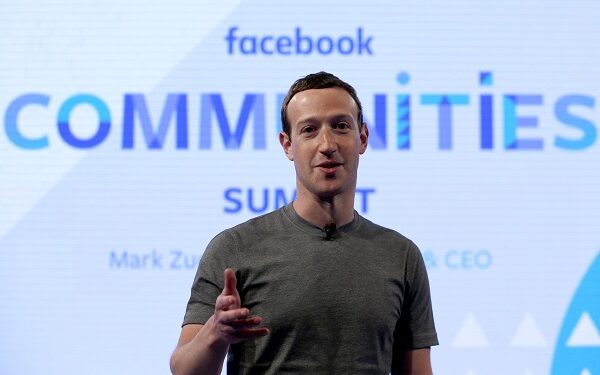Tavis McGinn applied for a job at Facebook last year hoping to work in market research. He had previously spent three years at Google, where he helped large advertisers refine their marketing campaigns across the company’s family of products. But part way through the interview process at Facebook, the recruiter told McGinn the company had something else in mind for him. How would he like to track the public perception of Mark Zuckerberg?
It was April, and Facebook was caught up in the fallout of the 2016 US presidential election. After initially discounting the possibility that fake news had contributed to Donald Trump’s victory, Facebook acknowledged that Russia-linked groups had spent more than $100,000 on political advertising. Zuckerberg undertook a nationwide listening tour modeled after a modern political campaign. McGinn would fill another role common to political campaigns: leading an ongoing poll operation dedicated to tracking minute changes in Zuckerberg’s public perception.
“It was a very unusual role,” McGinn says. “It was my job to do surveys and focus groups globally to understand why people like Mark Zuckerberg, whether they think they can trust him, and whether they’ve even heard of him. That’s especially important outside of the United States.”
McGinn tracked a wide range of questions related to Zuckerberg’s public perception. “Not just him in the abstract, but do people like Mark’s speeches? Do they like his interviews with the press? Do people like his posts on Facebook? It’s a bit like a political campaign, in the sense that you’re constantly measuring how every piece of communication lands. If Mark’s doing a barbecue in his backyard and he hops on Facebook Live, how do people respond to that?”
Facebook worked to develop an understanding of Zuckerberg’s perception that went beyond simple “thumbs-up” or “thumbs-down” metrics, McGinn says. “If Mark gives a speech and he’s talking about immigration and universal health care and access to equal education, it’s looking at all the different topics that Mark mentions and seeing what resonates with different audiences in the United States,” he says. “It’s very advanced research.”
Facebook also conducted similar research on behalf of the company’s chief operating officer, Sheryl Sandberg. Surveys measured awareness about Sandberg, whether people liked and trusted her, and how they felt about her speeches, interviews, and Facebook posts. McGinn also surveyed people on whether they associated Sandberg with Facebook or her personal initiatives, such as Lean In and Option B.
The company further measured how Sandberg’s public image compared with Zuckerberg’s. The results were shared directly with Zuckerberg and Sandberg, along with their lieutenants, their communications teams, and external public relations agencies. Research included both surveys and focus groups and was conducted around the world, McGinn says. (He declined to share the budget for the project, but described it as “very, very expensive.”)
Facebook is not unique among tech companies in conducting surveys to gauge perceptions about its brand. Sometimes, those surveys include questions about founders and CEOs. Amid its own crisis last year, Uber surveyed customers on their opinions about the brand and about its former CEO Travis Kalanick. (Perceptions of Kalanick were so negative that the board used the data in an effort to persuade him to quit, according to a report in Bloomberglast month.)
TheVerge.com






